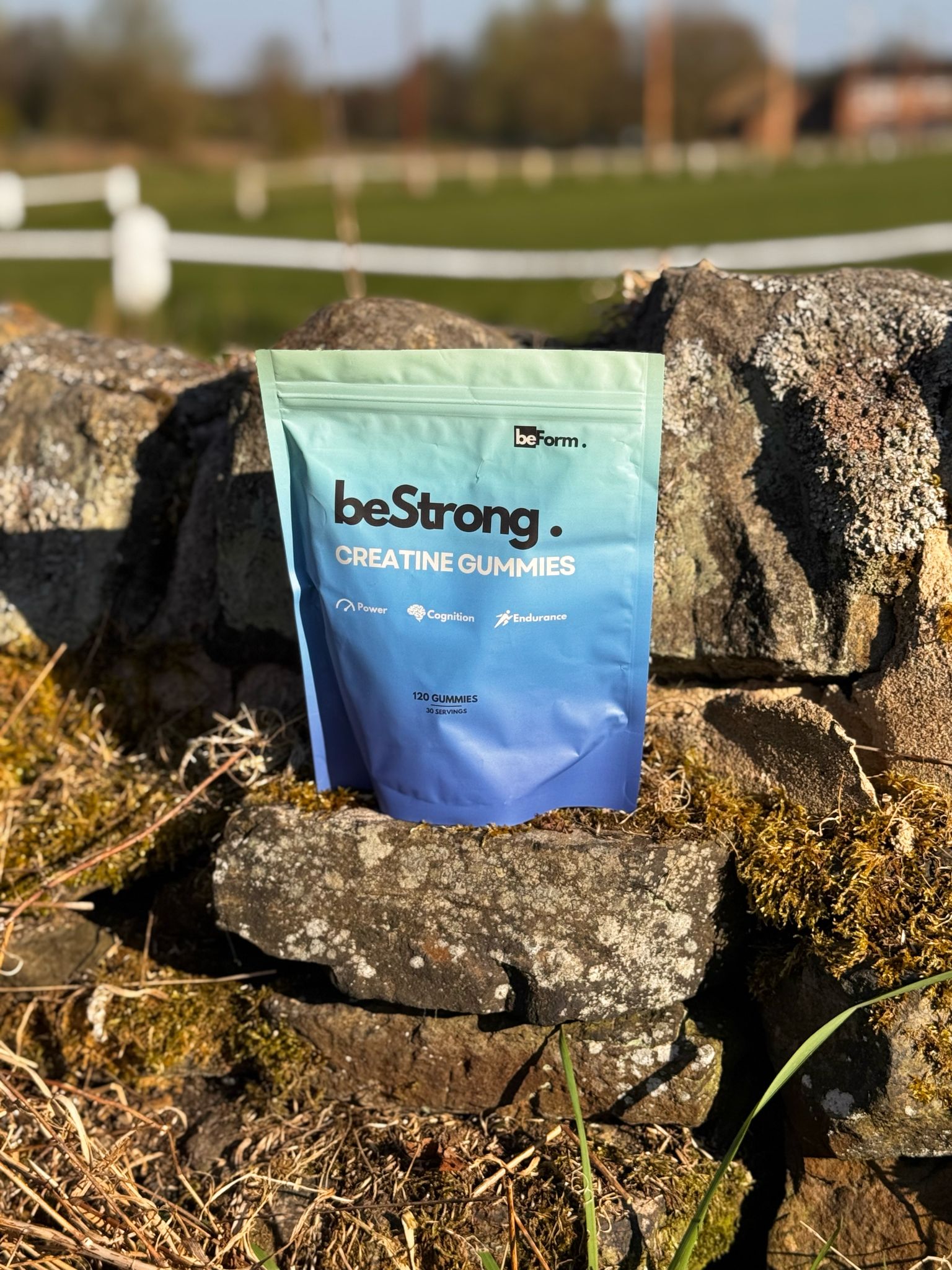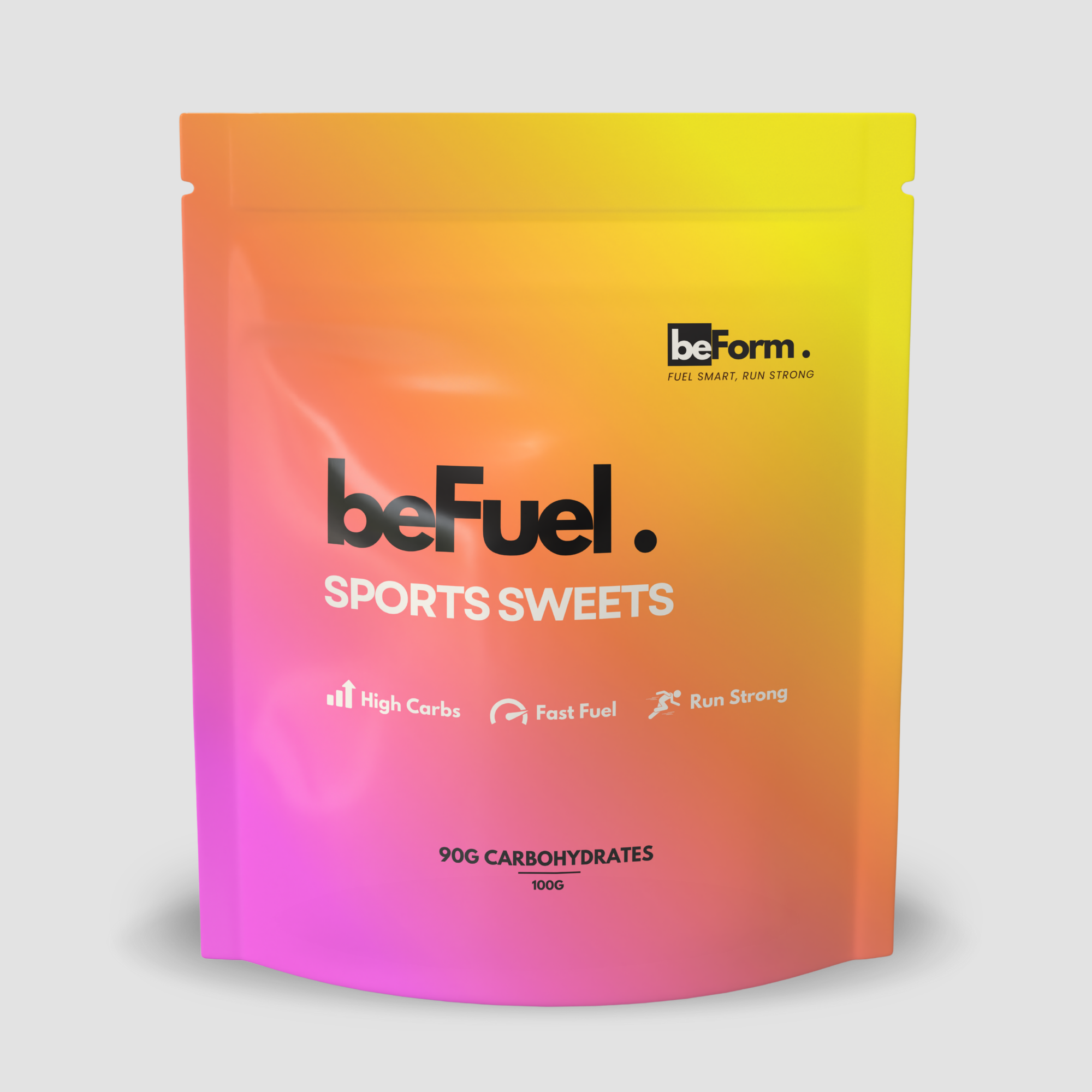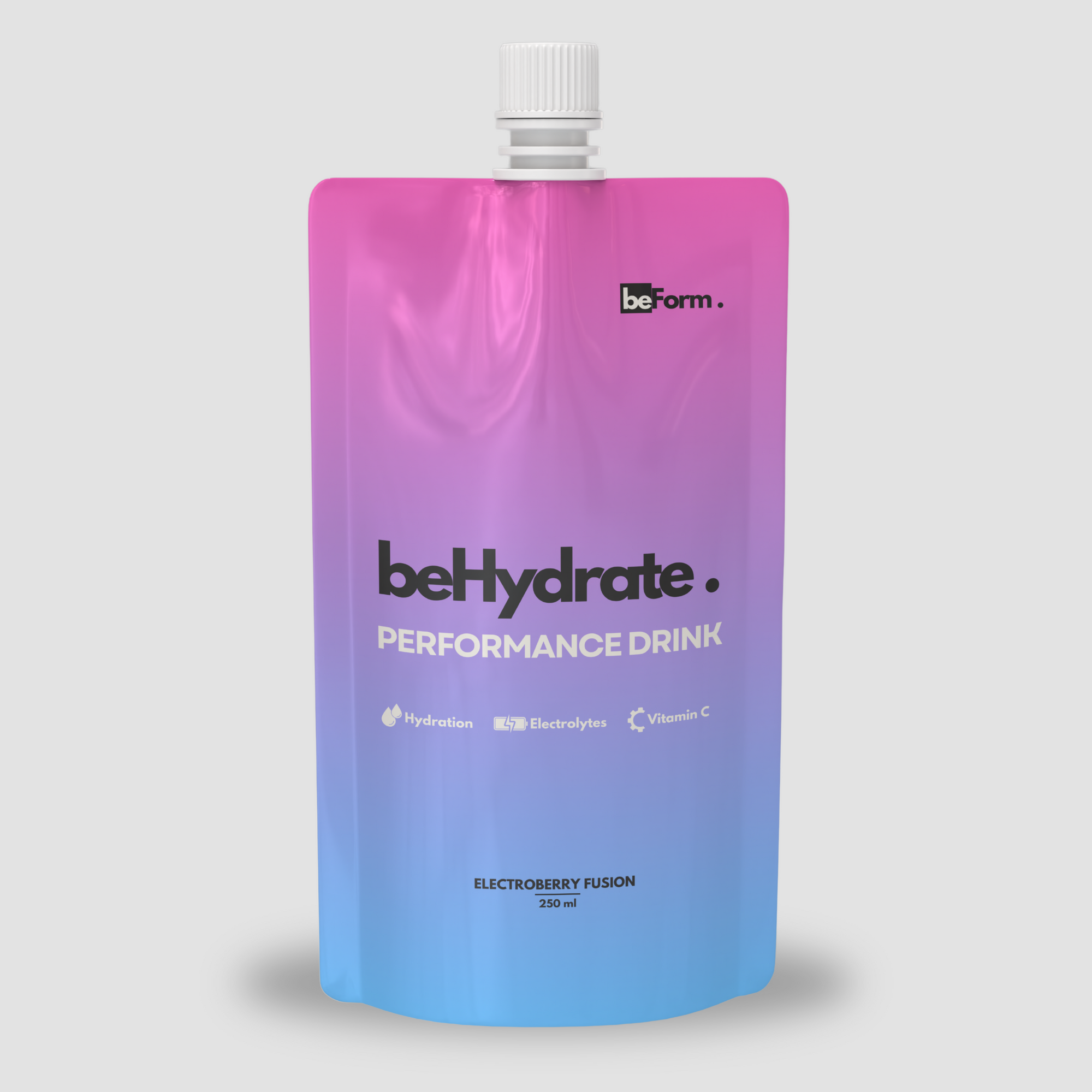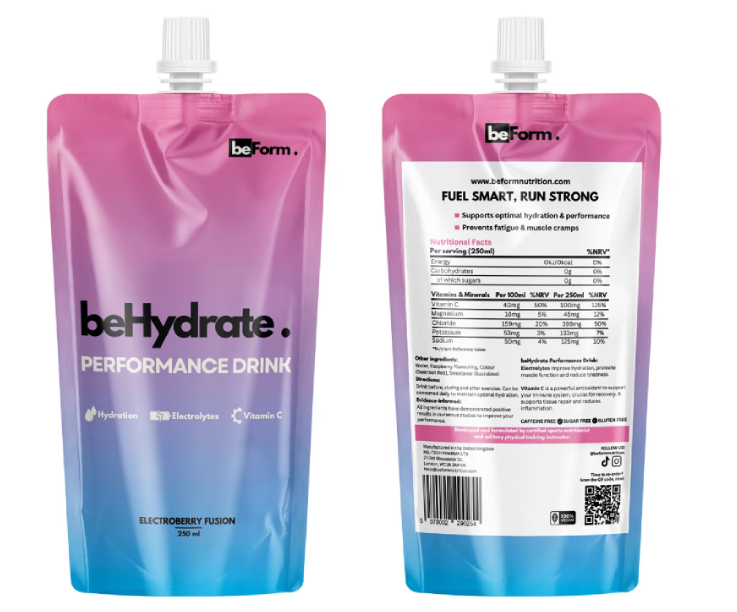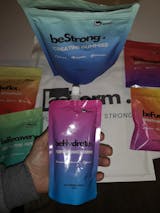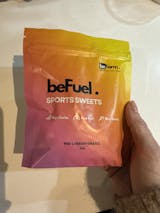Introduction to Running Supplements
Beginning to run can be both exhilarating and daunting for novice runners.
As individuals transition from an inactive lifestyle to one involving physical activity, their nutritional requirements shift considerably.
This is where running supplements come into play as valuable tools that can aid performance enhancement, recovery aids, and overall health improvements during this transformative phase.
Running requires increased energy, vitamins, and minerals to support performance and recovery, with regular runners' bodies needing additional energy, vitamins, and minerals from energy supplements to meet performance and recovery demands. This is called a higher 'nutrient turnover'.
Running puts stress on your body, which may deplete necessary nutrient stores over time. This means beginner runners might lack the sufficient protein required for muscle repair and growth. Incorporating appropriate dietary supplements can ensure they're meeting nutritional requirements effectively without significantly altering diet plans.
Supplements can play an essential part in helping runners avoid injuries and improve endurance. Omega-3 fatty acids have anti-inflammatory properties that reduce soreness from workout sessions and promote faster recovery after intense sessions, while antioxidants found in various supplements support immune function to ensure novice runners remain healthy enough to continue training without interruptions.
As part of a balanced running nutrition, supplements should enhance rather than replace whole foods for maximum efficiency. New runners may find the complex world of dietary supplements daunting; therefore, they must identify which ones meet their training goals and health requirements best.
Creatine Monohydrate: Powering Your Performance
Creatine monohydrate is an extensively studied dietary supplement that has grown increasingly popular among athletes and fitness enthusiasts due to its ability to improve performance during high-intensity exercises such as running or weightlifting.
A natural substance found in small amounts in certain foods such as red meat or fish, creatine is also produced naturally in your body, where its primary role is assisting rapid regeneration of Adenosine Triphosphate (ATP), the primary energy carrier in cells, which is crucial during anaerobic activities such as sprinting or weightlifting.
Beginner runners who incorporate creatine monohydrate supplements into their supplementation routine may reap numerous advantages. One significant perk of doing so is its increase in energy production during intense workouts, leading to faster paces or longer distances being covered with increased ATP availability and faster paces or distance covered.
Furthermore, creatine has also been shown to boost strength levels, which may aid running form and efficiency; it is especially beneficial in hill runs or sprint intervals where extra strength could provide a competitive edge.
Creatine monohydrate plays a key role in recovery as well. Studies have revealed that it reduces muscle damage and inflammation from intense exercise, leading to faster recovery times and less soreness for runners of any experience level. This can be particularly helpful for beginning runners experiencing delayed onset muscle soreness (DOMS).
For optimal results, most experts suggest taking 3-5 grams of creatine monohydrate daily. You can take it alongside workouts for convenience or as part of daily nutrition plans. I recommend our beStrong creatine gummies, which are tasty and convenient.
Although creatine should generally be safe for most individuals, potential side effects could include gastrointestinal distress or water retention. Therefore, it is essential that adequate hydration be maintained before beginning any new supplementation routines.
Nitric Oxide Boost: The Role of Red Spinach Extract
Nitric Oxide (NO) is an essential molecule in our bodies that plays an integral part in improving cardiovascular function and athletic performance.
For beginner runners looking to enhance both their performance and recovery, taking NO boosters like red spinach extract may provide multiple advantages.
Red spinach is rich in nitrates, which the body converts into NO for increased blood flow and oxygen delivery during exercise, which plays an essential part in maintaining endurance while decreasing fatigue levels.
Red spinach extract as a nitric oxide booster has several primary advantages, the chief among them being enhancing blood circulation.
Increased blood flow ensures vital nutrients and oxygen reach muscles when they need it the most, leading to improved endurance for runners at higher intensities for longer durations and reduced perceived exertion, allowing newcomers to push through challenging workouts to meet training goals without experiencing excessive fatigue.
Red spinach extract can easily be integrated into any training regime. It comes in many forms, including capsules, powders, and as an ingredient in pre-workout supplements are all viable ways of taking red spinach extract.
For optimal results, beginners may wish to take 30-60 minutes before their workout to maximise its nitric oxide-boosting benefits during exercise. It's also vitally important that runners ensure a diet rich in whole foods and adequate hydration, as these factors play a crucial role in overall health and performance.
Red spinach extract can greatly improve performance for novice runners. To maximise its benefits and achieve full benefits from red spinach extract use, it should be combined with regular training and rest periods.
Doing this will provide them with a stronger foundation for endurance running while reaping all its rewards as a nitric oxide booster.
Want to feed your blood with nitric oxide to sustain long bouts of running? Try beEnergy today!
The Impact of Caffeine on Running Performance
Caffeine is widely recognised as an effective stimulant that can significantly impact athletic performance, particularly in endurance sports such as running.
Numerous studies have demonstrated the power of caffeine to enhance physical performance by providing an energy boost and improving focus, concentration and endurance levels during running sessions.
When consumed before running, caffeine can elevate endurance levels by mobilising fat stores that store glycogen; this allows runners to go further without fatigue.
Timing caffeine intake before exercise is often advised at 30-60 minutes before, which will allow it to reach peak levels in the bloodstream and maximise its benefits during runs.
Research suggests consuming 3 to 6 mg per kg bodyweight without experiencing adverse side effects; for example, someone weighing 70kg could benefit from around 210-420 mg of caffeine, which equals roughly two or four cups of coffee, depending on your preferred brew.
Caffeine offers many potential advantages beyond endurance sports. Runners report improved speed and reaction times after taking in caffeine before training sessions or competitions.
Furthermore, caffeine may improve cognitive functions, which is especially valuable during long races when mental fatigue may impede performance. But perceptions around caffeine use among athletes vary considerably: some see it as a necessary enhancement while others view it with suspicion.
Caffeine can be an invaluable aid for new runners looking to enhance their performance and speed. When used appropriately, caffeine can enhance endurance and focus, leading to more positive running experiences overall.
Iron Supplements: Essential for Female Runners
Iron is essential to the overall health and performance of runners, particularly female runners who may be susceptible to iron deficiency due to menstruation.
Iron plays an essential role in producing haemoglobin, the protein responsible for carrying oxygen from red blood cells to muscle and tissue cells, thus optimising energy levels, endurance performance and running endurance during runs.
When iron levels decline too drastically, individuals may experience fatigue, weakness and decreased athletic performance, thus making awareness of this deficiency an imperative task for female athletes.
Iron deficiency symptoms typically include persistent fatigue, pale skin tone, shortness of breath during physical activity and dizziness. These are all symptoms that could impact training consistency and overall performance, calling attention to the importance of adequate iron intake.
Ensuring optimal iron levels can bolster immune function, support muscle metabolism, aid post-exercise recovery and allow runners to train efficiently without risk due to low iron.
This is particularly relevant to female athletes as their iron levels tend to fluctuate monthly during the menstrual cycle.
Dietary sources of iron include both heme and non-heme forms of this mineral. We've also included iron in our beFit daily supplement.
Heme iron
This is more readily absorbed by the body and can be found in animal products like red meats, poultry, and fish.
Non-heme iron
Typically found in plant sources such as legumes, spinach and fortified grains, it has a lower absorption rate but can still be beneficial when consumed alongside vitamin C-rich foods such as citrus fruits or bell peppers.
To maximise absorption rates, it is advised that non-heme iron be eaten together with such vitamin-C-rich foods as citrus fruits or bell peppers.
Supplementation may be necessary if diet alone cannot meet daily iron requirements, and consultation with healthcare providers before initiating any supplementation regimen should always take precedence, as excess iron intake could cause toxicities. Women running should prioritise keeping adequate iron levels to support both their health and athletic goals effectively.
A Comprehensive Look at Other Key Supplements
Supplements that runners often take aren't the only supplements that can boost performance and recovery, however.
One such key supplement is BCAAs (branched-chain amino acids). BCAAs play an integral part in muscle recovery by aiding protein synthesis and decreasing muscle soreness, helping runners maintain training intensity and thus contributing to increased performance.
Electrolytes are essential supplements for those engaged in long-distance running, particularly over extended distances. These minerals help maintain adequate hydration levels while supporting nerve function and muscle contractions. Over time, runners lose electrolytes through sweat, making replenishment essential to avoiding cramps and maintaining peak performance.
Ashwagandha, an adaptogenic herb, is widely revered for its ability to manage stress. Lowering cortisol levels not only supports mental well-being but physical recovery too helping runners cope better with training demands and recover faster than before.
Fenugreek seeds also support hormonal balance for male runners by increasing testosterone levels, potentially improving stamina and recovery through enhanced performance and stamina levels.
Boswellia extract can provide runners with joint pain an effective supplement that addresses inflammation. By decreasing inflammatory markers, this dietary supplement promotes faster recovery and reduced discomfort during workouts.
Key vitamins D, K and B6 support overall health by improving muscle function, bone health and energy metabolism, respectively.
Herbal supplements like nettle extract and mucuna pruriens may further accelerate recovery for runners. Nettle helps reduce inflammation, while mucuna is known to enhance mood while speeding muscle repair. Furthermore, ginger and turmeric have anti-inflammatory properties, making them excellent dietary additions.
Omega-3 fatty acids found in fish oil have long been recognised for their anti-inflammatory and joint support properties, making them an indispensable addition to runners' training routines for optimal recovery and performance enhancement.
Creating a Supplement Routine: What to Consider
Beginner runners embarking on fitness journeys should establish a supplement routine to support their performance and recovery.
When making such plans, several factors should be taken into consideration to create the ideal plan; firstly, it's crucial to determine your specific health goals.
For instance, if they include improving endurance, increasing recovery or decreasing injury risk, these goals will determine which supplements best meet them.
Training intensity plays an essential part in determining supplement needs. For instance, individuals engaged in higher-intensity running sessions may need additional protein supplements for muscle recovery, while those running at moderate paces should concentrate on hydration and electrolyte balance.
Furthermore, any dietary restrictions must also be acknowledged: vegetarians or those adhering to gluten-free diets may need specific supplements to address potential nutritional gaps, such as Vitamin B12 or Iron deficiency.
Last, but certainly not least, is to strike a balance between supplements and whole foods.
Although supplements can provide targeted nutritional support, they shouldn't entirely replace nutrient-dense food sources containing essential vitamins, minerals, and antioxidants that play an integral part in overall health, which means combining whole food sources with carefully chosen supplements will produce optimal results for beginner runners' performance and recovery strategies.
By carefully considering these factors when creating your supplement routines for running objectives, you can find success and accelerate recovery strategies more quickly!
Please share any insight or advice on our Facebook page so we can all work together and overcome this obstacle and enjoy running to its fullest.



